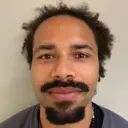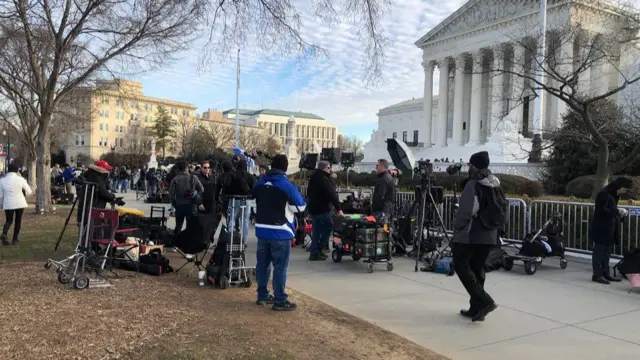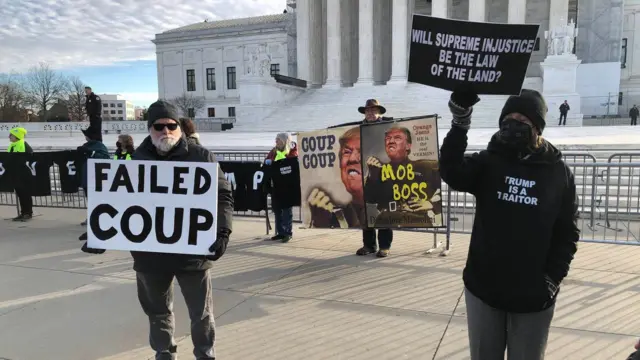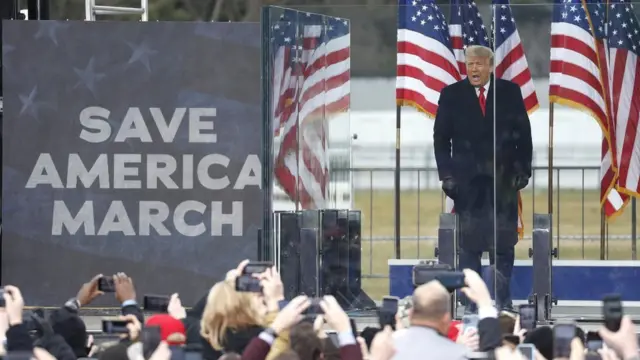Justice expresses initial scepticism of Trump's defence argumentspublished at 15:31 GMT 8 February 2024
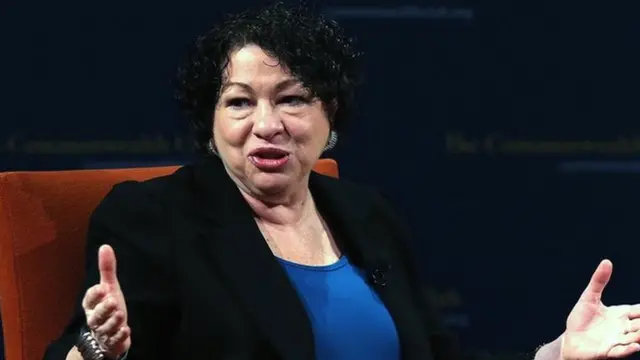 Image source, Getty Images
Image source, Getty ImagesSotomayor has been on the court since 2009
Trump's defence lawyer Jonathan Mitchell tells the court that Section 3 doesn't apply to Donald Trump, because it doesn't apply to the office of the presidency and because courts do not have the power to bar a candidate from running for president.
Mitchell said Congress would need to pass legislation enabling courts that power.
Justice Sonia Sotomayor, one of the three liberal justices, responds: "History proves a lot to me, and to my colleagues, generally. And there's a whole lot of examples of states relying on Section 3 to disqualify insurrectionists for state offices," she says.
Sotomayor says Mitchell is basically asking the justices to go "three steps" beyond direct interpretations of Section 3 to accept his arguments,
"You want us now to say it means that Congress must permit states or require states to stop insurrectionists from taking the state office," Sotomayor asks. "This is a complete pre-emption in a way that's very rare."


